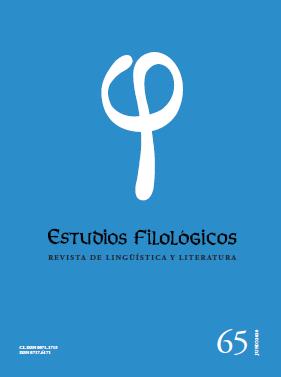Ideational metafunction in chilean sign language: Lexical verb forms as processes
Main Article Content
Abstract
In this study, part of the Fondecyt research project No 3180640, we explore the realization of the Ideational Metafunction in Chilean Sign Language (LSCh). The conceptualization of the semantics of ideation is based on the theoretical framework of Systemic Functional Grammar (SFG) and, therefore, its inductive and descriptive approach is adopted to explore the relation between the verbal forms in LSCh and their semantic function. Our corpus is formed by visual-spatial clauses from 42 narratives produced by 14 Deaf signers with 7 or more years of immersion in LSCh and with ages ranging from 9 to 16 years old. The elicitation task was a semi-structured interview conducted by a deaf interviewer. A research team composed by deaf and hearing researchers analyzed the corpus using ELAN, a software enabling the display and code-annotation of a visual corpus. In this article, we present 12 cases, selected upon the crossing of semantic categories (material, behavioral, mental and verbal) and traditional verb categories in Sign Languages (plain, directional and spatial). As a result, it was observed that lexicogrammatical models construe the verbal idea using a variety of resources (verb forms, role-shifting and classifier constructions), which differ in the use of space, a key linguistic resource for Sign Languages. These preliminary results can enrich the analysis methods for LSCh and deepen our understanding of this language, especially its grammar, which is a current necessity for developing educational programs for deaf students.

